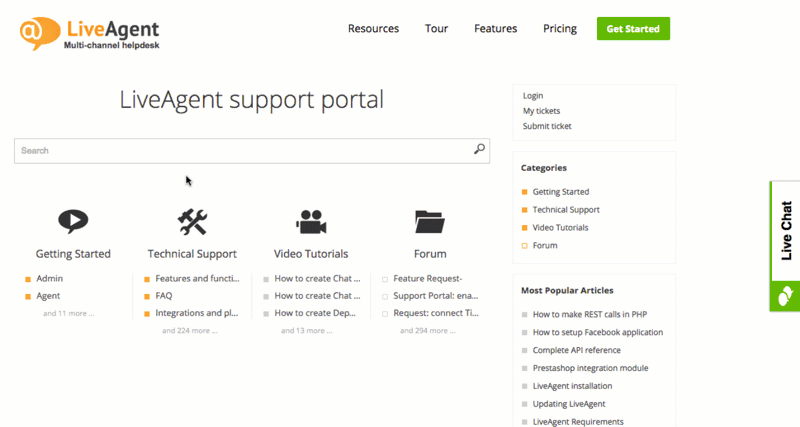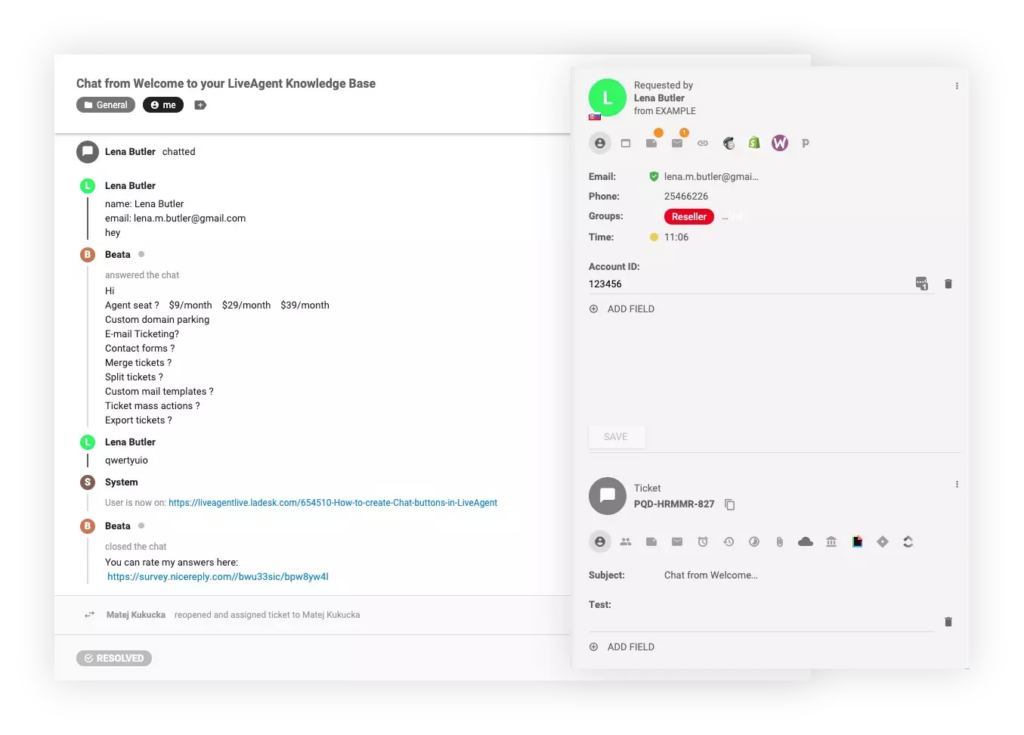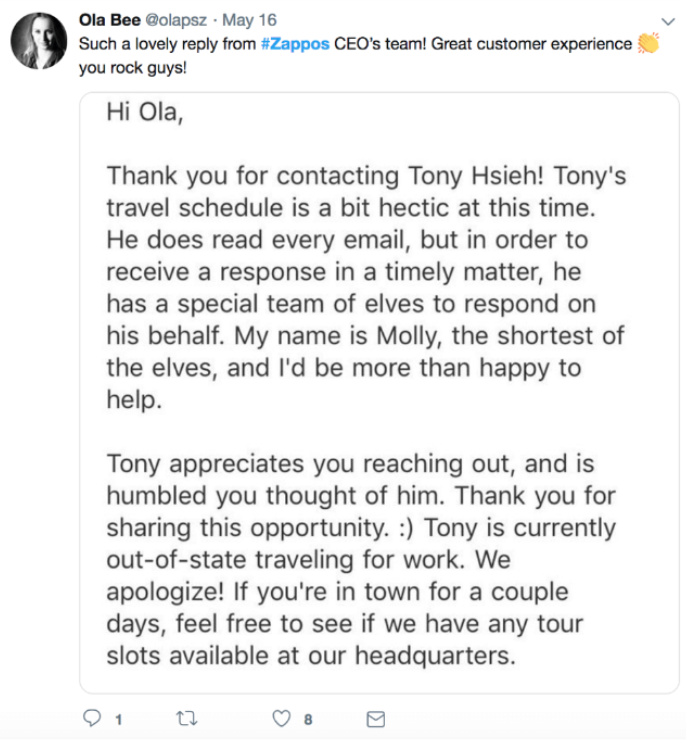Customer care can make or break a company’s reputation. Customers are seeking more than just products; they crave exceptional experiences that resonate with their needs and preferences.
Understanding the nuances of customer care is essential, as it differs from customer service and overall customer experience. Effective customer care involves proactive engagement, empathy, and personalized interactions that forge meaningful connections with clients.
This article will explore the definition and significance of customer care, identify key components and best practices, and highlight measurable metrics to gauge its effectiveness. We will also uncover successful examples from leading companies and discuss future trends, with LiveAgent positioned as the ultimate solution to enhance your customer care strategy.
Table of Contents
- Importance of customer care
- Differences between customer care, customer service, and customer experience
- Key components of effective customer care
- Best practices in customer care
- Measuring customer care effectiveness
- Examples of leading companies in customer care
- Future Trends in Customer Care
- Conclusion
Importance of customer care
Customer care is crucial for building strong emotional connections with your customers. This connection enhances brand loyalty and often results in increased revenue. Positive customer care experiences contribute to higher retention rates, as satisfied customers are more likely to make repeat purchases.
In today’s digital world, providing friendly and accessible service enhances the customer experience. This makes customer care a vital component of any business strategy. Businesses that prioritize customer care can significantly affect their reputation. Customers often share negative experiences more than positive ones, so excellent service is essential.
Metrics like Customer Satisfaction Score (CSAT), Net Promoter Score (NPS), and Customer Effort Score (CES) are useful. They help measure the effectiveness of customer care efforts and ensure ongoing improvement.
For business owners seeking an effective solution, LiveAgent is an excellent option. It can enhance interactions with customers, resulting in happy, loyal customers.
Key Benefits of Customer Care
- Builds emotional connections
- Increases brand loyalty
- Boosts customer retention
- Reduces risk of negative experiences
- Improves overall customer satisfaction
By focusing on excellent customer care, businesses can turn potential customers into satisfied, loyal ones.
Differences between customer care, customer service, and customer experience
Customer service focuses on helping customers with product discovery, usage, and troubleshooting. It is often transactional but essential in resolving immediate queries or technical issues.
Customer care, on the other hand, zeroes in on the emotional needs of the customer. It is about creating a personalized interaction that makes them feel valued. Unlike customer service, it emphasizes solving problems while building a lasting emotional connection with customers.
Customer experience represents the total perception a customer holds about a brand from all their interactions. It includes every touchpoint, from marketing to purchase and beyond. Customer care plays a part in shaping this experience by enhancing individual interactions.
Here’s a quick comparison:
| Aspect | Customer Service | Customer Care | Customer Experience |
|---|---|---|---|
| Focus | Product usage, discovery, troubleshooting | Emotional connection, personalization | Overall brand perception |
| Nature | Transactional | Personalized engagement | Cumulative product or service interactions |
Customer care is crucial for creating loyal customers by offering positive experiences that exceed customer expectations. Using tools like LiveAgent can enhance your customer care program by making customers feel heard and valued.
Key components of effective customer care
Effective customer care involves more than just solving issues. It is about creating ongoing relationships through personalized, positive experiences that fulfill customer needs. By focusing on emotional connections and satisfaction, businesses can drive loyalty and enhance customer value, directly impacting their revenue. Let’s dive into the key components of effective customer care.
Proactive engagement
Proactive engagement means anticipating and addressing customer needs before they become problems. This approach not only prevents issues but also saves time for the customer service team. For instance, proactive support can be demonstrated by using help widgets to assist frustrated users or by sending emails about abandoned carts.
Leveraging customer data is vital for understanding preferences and providing real-time personalized service. This not only boosts customer loyalty but also opens up additional sales opportunities. Building a proactive support system shows a business’s commitment to meeting customer needs, leading to a more positive customer experience.

Empathy and understanding
Empathy and understanding are crucial for transforming challenging customer interactions into positive experiences. By actively listening and addressing feelings, customer service representatives can foster a sense of appreciation and connection. Expressing gratitude for feedback also shows that customer concerns are valued.
Emotional intelligence helps customer service teams relate to frustrated customers and validate their emotions. By addressing potential issues early, businesses can prevent complaints and build lasting relationships founded on loyalty and satisfaction. This focus on fulfilling emotional needs differentiates companies in competitive markets.
Personalization
Personalization involves creating customized experiences tailored to individual customer expectations. Building detailed customer profiles is the foundation for designing these services. It is also important to train and support customer-facing teams to deliver personalized experiences effectively.
Offering choices, such as self-service options, allows customers to interact based on their preferences. Collecting and using feedback improves service quality and personalizes offers further. Successful personalization also relies on technology that connects the customer service team with comprehensive customer information. This ensures that every interaction feels tailored and meaningful.

Customer care is about more than resolving issues—it is about understanding, anticipating, and addressing the deeper emotional and personal needs of customers. Using tools like LiveAgent can significantly enhance your customer care program, ensuring that customers not only feel heard but also valued.
Best practices in customer care
Customer care is the backbone of any successful business. It goes beyond addressing queries to building long-term relationships with customers. A strong culture of customer support starts with everyone in the business, not just the customer service team. Implementing “All Hands Customer Care” days can help. This approach involves all employees engaging with customer inquiries. It creates a support-driven environment and increases empathy within the company.
Investing in regular training and conferences for customer care team members is vital. These opportunities keep team skills sharp and motivation high. In addition, a lively and interactive social media presence can enhance customer relations. It provides a platform for businesses to engage with customers warmly and helpfully.
When hiring, prioritize individuals with demonstrated empathy and effective customer care experience. They are better equipped to handle challenging situations and ensure customer satisfaction. With these strategies, you can provide excellent customer care and enhance the customer experience.
Swift response times
Timely responses are crucial in customer care. Customers expect swift answers, which helps in keeping them satisfied. One key performance indicator is the average response time. This metric shows if a company provides timely customer support.
Communicating expected response times is important. It helps manage customer expectations and can reduce churn rates. Over-the-phone communication about wait times also improves the customer service experience. Letting callers know how many people are ahead in the queue prevents frustration.

Implement systems that allow quick response times. This might include having enough available staff or capable customer service representatives. By doing so, you can meet customer needs promptly and enhance overall satisfaction.
Use of technology (e.g., CRM Tools)
Technology plays a vital role in customer care. Customer care representatives benefit from using conversational CRM tools. These tools keep a record of previous interactions, providing personalized support. Access to all customer support channels and information is crucial for quick, tailored care.
With a CRM, customer service agents don’t need to ask customers to repeat information. This eliminates frustration and speeds up problem resolution. Regularly gathering and acting on customer feedback can enhance service experiences.
Implementing a CRM database fosters better ongoing engagement with customers. It helps record client details, improving the ability of businesses to build lasting relationships.

Creating customer loyalty programs
Customer loyalty programs are a strategic way to grow your business. According to Nielsen, 84% of consumers prefer retailers with loyalty programs. These programs reward customers with discounts and exclusive perks. They foster trust and familiarity, encouraging increased spending.
Programs like PetSmart Treats demonstrate effective rewards. They keep customers engaged and incentivized to return. A Bain & Company study shows loyal customers are worth ten times more than their first purchase. Thus, investing in loyalty rewards can boost profitability.
A Bond Brand Loyalty survey found that 68% of millennial customers would change shopping habits for loyalty benefits. This highlights the importance of targeting this demographic. Implementing loyalty programs can significantly enhance customer satisfaction and retention.
Incorporating tools like LiveAgent can streamline many of these processes. With LiveAgent, businesses can effortlessly improve response times, integrate CRM tools, and manage loyalty programs. This leads to happy and loyal customers, boosting growth and success.
Ready to elevate your customer care game?
Sign up for LiveAgent today and watch your business thrive!
Measuring customer care effectiveness
Effective customer care is essential for building loyalty and ensuring customer satisfaction. To gauge its effectiveness, businesses should focus on understanding why customers choose their products and if they are likely to remain loyal. Empathy training for staff is a must, as it helps them recognize and address customer emotions, leading to superior customer care results.
Customer feedback is key. By using Key Performance Indicators (KPIs), businesses can gain insights into customer interactions that are necessary for evaluating their care efforts. Exceptional customer care anticipates customer needs and goes the extra mile, fostering stronger relationships and boosting brand loyalty. Assessing the impact of customer care on retention and satisfaction can also lead to positive reviews and referrals.
Customer Satisfaction Score (CSAT)
The Customer Satisfaction Score (CSAT) is a primary metric to determine if customers feel cared for during their interactions with a brand. It’s typically measured through surveys sent via digital channels, email, or voice recordings. CSAT metrics provide insights into satisfaction with specific products, transactions, or overall interactions. Reviewing these metrics regularly helps highlight areas for improvement in customer care services. CSAT is often used alongside the Net Promoter Score (NPS) to gain a comprehensive view of customer care effectiveness.
Customer Effort Score (CES)
The Customer Effort Score (CES) measures how easy it is for customers to resolve their issues during interactions with a company. Businesses can measure CES by sending surveys post-support interaction, where customers rate the ease of resolving their issues on a scale of 1 (very difficult) to 5 (very easy). Including open-ended questions can uncover specific customer difficulties and guide improvements in support experiences. A high CES score means easy access to the assistance they need, while a low score highlights areas needing enhancement. CES is crucial for understanding customer experience as high-effort interactions can lead to dissatisfaction and disloyalty.
Net Promoter Score (NPS)
The Net Promoter Score (NPS) measures how likely customers are to recommend a business, which indicates overall brand loyalty. It’s calculated from customer ratings on a scale of 1 to 10, with scores of 9 or 10 indicating promoters, 0 to 6 indicating detractors, and 7 or 8 as passives. NPS surveys can be sent after support interactions or to repeat customers. The objective is to assess customer satisfaction with the service and nurture long-term brand loyalty.

To optimize your customer care and ensure positive customer experiences, consider using LiveAgent. It’s a leading option that addresses customer care needs with efficiency and expertise. Implementing tools like LiveAgent can help improve your CSAT, CES, and NPS, leading to excellent customer care and satisfied customers.
Examples of leading companies in customer care
1. LiveAgent
LiveAgent is one of the most popular help desk solutions in the market. Designed to help customers deliver the best service, LiveAgent prides itself on providing excellent customer care. Besides the omnichannel approach, more than 40 languages, and 24/7 customer service, LiveAgent makes sure their customers always feel appreciated.

Being one of the most affordable comprehensive help desk solutions out there, LiveAgent often offers discounts and promos, so even businesses with the tightest budgets can afford to provide great customer support to their clients.

2. Zappos
Zappos is an online shoe and clothing store that prides itself on a personalized approach to customer messages. Rather than sending generic automated out-of-office messages, Zappos’ team takes time to address the customer and even gives tours of their headquarters to show their loyal customers what goes on behind the scenes.

3. Comme Ça Skincare
Continuing the topic of personalization, Comme Ça Skincare sends hand-written cards with their orders. This practice may feel antiquated, but it’s still a great way to make your customers feel valued and appreciated.

4. Starbucks
We couldn’t omit Starbucks from the list of brands that know how to make customers feel appreciated. In this particular case, Starbucks’ team was responsive to customer feedback and recommendations, reassuring them that their opinions and ideas mattered.

5. Alaska Airlines
Alaska Airlines is great at making their loyal customers feel appreciated. They offer various perks and organize events and special occasions for their loyal customer base.

Future Trends in Customer Care
As customers become more tech-savvy, businesses need to adapt. AI-powered self-service tools, such as chatbots and virtual assistants, are transforming customer care. These tools offer 24/7 support, greatly enhancing customer satisfaction.
Key Trends:
- First contact resolution: Resolving issues on the first attempt creates a positive customer care experience. It’s crucial for businesses aiming for high customer satisfaction scores.
- Omnichannel service: Digital-first customers expect seamless interactions across platforms. Providing options like live chat ensures quick resolutions and keeps customers happy.
- Personalization through AI: Contact centers increasingly use AI for personalized experiences, creating emotional connections and fostering customer loyalty.
- Data protection: Safeguarding customer data is paramount. Most customer experience leaders prioritize cybersecurity to maintain trust.
For businesses seeking to excel in customer care, LiveAgent offers the best solutions. It provides integrated tools for efficient, personalized, and secure customer interactions. Adapting to these trends ensures happy, loyal customers and excellent customer care.
Conclusion
Customer care goes beyond typical service interactions. It builds emotional connections and creates positive experiences throughout the entire customer journey. Excellent customer care means understanding and anticipating customer needs, which goes further than responding to queries.
Businesses can measure the success of their customer care through metrics like Net Promoter Score (NPS), Customer Satisfaction (CSAT), and Customer Effort Score (CES). These measurements help ensure that interactions with customers meet their expectations and foster satisfaction and loyalty.
To take your customer care to the next level, consider trying LiveAgent. This platform offers tools for managing customer feedback, ensuring personalized experiences, and creating happy, loyal customers. The 30-day free trial provides an excellent opportunity for business owners to explore and enhance their customer care strategy.
- Key Benefits of LiveAgent:
- Streamlines customer interactions
- Enhances customer satisfaction scores
- Provides insight into customer service experience
Explore LiveAgent today and see the positive impact on your customer care efforts. This could be your solution for creating exceptional customer service.
Ready to elevate your customer care game?
Sign up for LiveAgent today and watch your business thrive!
Frequently Asked Questions
What does the term customer care mean?
Customer care is the work of taking care of the customer's needs and expectations, as well as giving more than they expect. The customer service team is primarily responsible for this.
Can I start my own customer service business?
Before considering starting your own customer service business, it's important to assess the market demand, competition, and potential challenges. Research the industry, identify the target audience, and understand the specific needs and preferences of potential clients. Consider the resources required, such as technology, personnel, and infrastructure, and evaluate the financial feasibility of the venture. It's also important to develop a comprehensive business plan that outlines the services offered, pricing strategy, marketing approach, and operational processes. Additionally, consider the ethical implications of customer service, such as privacy, data security, and fair treatment of customers. As with any business endeavor, starting a customer service business requires careful consideration and planning to ensure success.
Are customer care and customer service the same thing?
No, customer service and customer care are terms pointing to different concepts. Customer service focuses on answering customer questions, resolving issues, and providing guidance, whereas customer care is a holistic approach focused on building strong, long-lasting relationships, and emotional connections.
What is the difference between customer care and customer experience?
Customer care refers to the assistance provided by a company to address the needs and concerns of its customers. This can include services such as resolving complaints, providing technical support, or offering guidance on product usage. On the other hand, customer experience encompasses the overall customer perception of a company, including every touchpoint from initial awareness to post-purchase engagement. It is a broader view of the customer's relationship with the company, encompassing aspects such as branding, marketing, product quality, and overall satisfaction.
Why is customer care important?
Customer service is one of the most important areas in the sales process. Thanks to this, the brand builds lasting relationships with the client, it can get to know their problems and expectations in detail. Customer service is also the first point of contact with the customer, so it has a chance to quickly respond to their needs.
What is the role of customer care?
In any business or industry, customer care is crucial, as it involves a wide range of activities and responsibilities aimed at creating a positive customer experience, developing strong relationships with customers, and ensuring their satisfaction.
What are 3 principles of customer care?
The first and foremost principle is that customer service must listen to the customer. Thanks to this, the company can be up to date with whether it meets customer needs and receives feedback on what it can improve in the functioning of the entire brand. The second rule is an individual approach to the client. The client must feel that he is being treated as a specific entity and not as one of many. The third principle is being empathetic. Customer service should try to understand why the customer is behaving the way they do.
How should I handle an angry customer?
Not every customer service experience is a pleasant one. Frustrated customers can be sometimes quick to lose their cool, which makes it difficult to communicate effectively. The most important thing is to stay calm. Empathize with your angry customers, acknowledge their feelings, apologize, and offer the best possible solution for their situation. If you feel overwhelmed after such an interaction, take a few minutes for yourself, go on a short walk, and drink a glass of water to calm down.
How is customer churn related to customer care?
When customers don’t feel valued and appreciated, they tend to take their business elsewhere. The lack of customer care and bad customer experiences are often the reasons companies struggle to build a loyal customer base.
What tools can you use to train your agents for a personal approach?
There are various tools and ways to help you set up customer service training. One such tool is LiveAgent. You can combine a wealth of resources your agents can refer to in an internal knowledge base, accessible to all your employees.
After exploring the concept of customer care, you might find it beneficial to dive into how a customer-centric culture can be achieved. This article will guide you on meeting customer needs and creating a seamless experience to boost satisfaction. Additionally, check out the Top 20 Knowledge Base Examples to see how leading companies manage their customer information. These examples can inspire you to enhance your own customer support systems.
Customer appreciation guide: how to say thank you in 19 ways
Discover 19 creative customer appreciation ideas to boost loyalty and satisfaction. Strengthen relationships with heartfelt gestures and gratitude!

 Български
Български  Čeština
Čeština  Dansk
Dansk  Deutsch
Deutsch  Eesti
Eesti  Español
Español  Français
Français  Ελληνικα
Ελληνικα  Hrvatski
Hrvatski  Italiano
Italiano  Latviešu
Latviešu  Lietuviškai
Lietuviškai  Magyar
Magyar  Nederlands
Nederlands  Norsk bokmål
Norsk bokmål  Polski
Polski  Română
Română  Русский
Русский  Slovenčina
Slovenčina  Slovenščina
Slovenščina  简体中文
简体中文  Tagalog
Tagalog  Tiếng Việt
Tiếng Việt  العربية
العربية  Português
Português 





